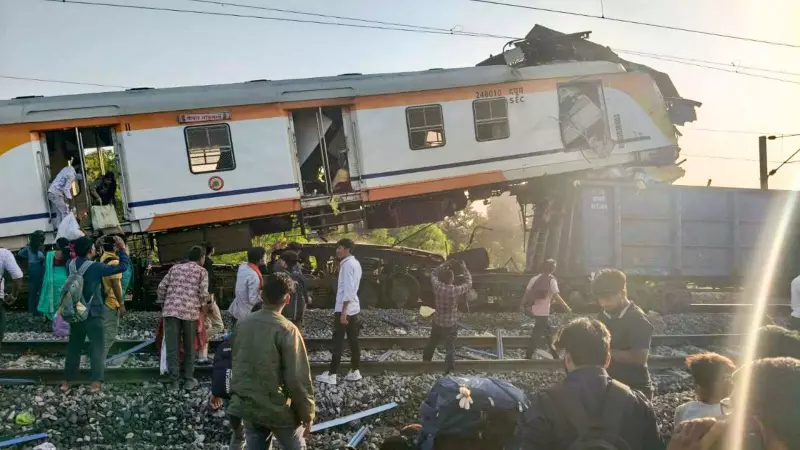
The preliminary investigation into the devastating train collision in Chhattisgarh's Jashpur district is facing serious challenges as the locomotive pilots' union has identified what they claim are significant factual inaccuracies in the official report.
The tragic incident, which occurred when two trains collided near the Khamarghat railway station, resulted in the heartbreaking loss of 12 lives and left numerous passengers injured. The collision involved a goods train and a passenger train, creating one of the most serious railway accidents in recent memory.
Union Raises Critical Questions
The All India Loco Running Staff Association (AILRSA) has formally expressed its concerns about the initial investigation findings. In a detailed communication to railway authorities, the union highlighted several discrepancies that could potentially alter the understanding of how this tragedy unfolded.
According to union representatives, the preliminary report contains fundamental errors regarding the sequence of events and operational circumstances that preceded the collision. These alleged inaccuracies have raised questions about whether the investigation has properly identified the root causes of the accident.
Safety Protocols Under Scrutiny
The union's intervention brings renewed attention to railway safety protocols and investigation procedures. Industry experts suggest that if the union's claims are validated, it could indicate systemic issues in how railway accidents are investigated and documented.
The timing of this challenge is particularly significant as it comes when Indian Railways is working to enhance its safety record and modernize its infrastructure. A thorough and accurate investigation is crucial not only for assigning responsibility but also for implementing preventive measures to avoid similar tragedies in the future.
Call for Transparent Investigation
Railway authorities now face increasing pressure to address the union's concerns transparently. The AILRSA has emphasized the importance of a comprehensive and unbiased investigation that considers all technical and operational aspects of the incident.
As families of the victims seek answers and accountability, the railway administration must balance the need for timely conclusions with the necessity of accurate findings. The credibility of future safety measures depends heavily on the thoroughness of this investigation process.
The development underscores the critical role that frontline railway staff play in ensuring operational safety and their valuable perspective in understanding complex accident scenarios.






